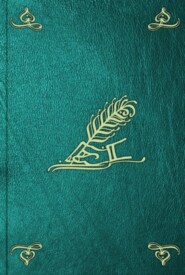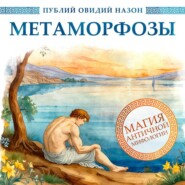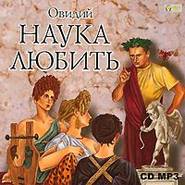По всем вопросам обращайтесь на: info@litportal.ru
(©) 2003-2024.
✖
The Amores; or, Amours
Настройки чтения
Размер шрифта
Высота строк
Поля
[ Touch the lips.—Ver. 17. See the Tristia, Book v., El. iv. 1 5, and the Note to the passage.]
459 (return (#x4_x_4_i23))
[ In her desk.—Ver. 19. 'Loculi' used in the plural, as in the present instance, signified a receptacle with compartments, similar, perhaps, to our writing desks; a small box, coffer, casket, or cabinet of wood or ivory, for keeping money or jewels.]
460 (return (#x4_x_4_i28))
[ Sulmo.—Ver. 1. See the Note to the first line of the First Elegy of this Book.]
461 (return (#x4_x_4_i28))
[ Pelignian land.—Ver. 1. From Pliny the Elder, we learn that the Peligni were divided into three tribes, the Corfinienses, the Superequani, and the Sulmonenses.]
462 (return (#x4_x_4_i28))
[ Constellation.—Ver. 4. He alludes to the heat attending the Dog star, see the Fasti, Book iv., 1. 939, and the Note to the passage.]
463 (return (#x4_x_4_i28))
[ The thin soil.—Ver. 8. 'Rarus ager' means, a 'thin' or 'loose' soil, which was well suited for the cultivation of the grape.]
464 (return (#x4_x_4_i28))
[ That bears its berries.—Ver. 8. In Nisard's translation, the words 'bacciferam Pallada,' which mean the olive, are rendered 'L'amande Caere Pallas,' 'the almond dear to Pallas.']
465 (return (#x4_x_4_i29))
[ Lengthened tracks.—Ver. 16. To the Delphin Editor this seems a silly expression.]
466 (return (#x4_x_4_i29))
[ The stormy Alps.—Ver. 19. See the Metamorphoses, Book ii. 1. 226, and the Note to the passage.]
467 (return (#x4_x_4_i30))
[ The obedient stream.—Ver. 35. This was a method of irrigation in agriculture, much resorted to by the ancients.]
468 (return (#x4_x_4_i30))
[ Fierce Cilicians —Ver. 39. The people of the interior of Cilicia, in Asia Minor, were of rude and savage manners while those on the coast had been engaged in piracy, until it had been effectually suppressed by Pompey.]
469 (return (#x4_x_4_i30))
[ Britons painted green.—Ver. 39. The Britons may be called 'virides,' from their island being surrounded by the sea; or, more probably, from the colour with which they were in the habit of staining their bodies. Cæsar says, in the Fifth Book of the Gallic war, 'The Britons stain themselves with woad, 'vitrum,' or 'glastum,' which produces a blue colour: and thus they become of a more dreadful appearance in battle.' The conquest of Britain, by Cæsar, is alluded to in the Fifteenth Book of the Metamorphoses, 1. 752.]
471 (return (#x4_x_4_i31))
[ Loves the vine.—Ver. 41. The custom of training vines by the side of the elm, has been alluded to in a previous Note. See also the Metamorphoses, Book xiv. 1. 663, and the Note to the passage.]
472 (return (#x4_x_4_i31))
[ As the nags.—Ver. 49. The 'manni' were used by the Romans for much the same purpose as our coach-horses; and were probably more noted for their fleetness than their strength; They were a small breed, originally imported from Gaul, and the possession of them was supposed to indicate the possession of considerable wealth. As the 'esseda' was a small vehicle, and probably of light structure, we must not be surprised at Corinna being in the habit of driving for herself. The distance from Rome to Sulmo was about ninety miles: and the journey, from his expressions in the fifty-first and fifty-second lines, must have been over hill and dale.]
473 (return (#x4_x_4_i31))
[ Your little chaise.—Ver. 49. For an account of the 'essedum,' or 'esseda,' see the Pontic Epistles, Book ii. Ep. 10, 1. 34, and the Note to the passage.]
474 (return (#x4_x_4_i36))
[ King of Pkthia.—Ver. 17.] He alludes to the marriage of Thetis, the sea Goddess, to Peleus, the king of Phthia, in Thessaly.]
475 (return (#x4_x_4_i36))
[ His anvil.—Ver. 19. It is a somewhat curious fact, that the anvils of the ancients exactly resembled in form and every particular those used at the present day.]
476 (return (#x4_x_4_i36))
[ Becomingly united.—Ver. 22. He says, that in the Elegiac measure the Pentameter, or line of five feet, is not unhappily matched with the Hexameter, or heroic line of six feet.]
477 (return (#x4_x_4_i37))
[ Disavowed by you.—Ver. 26. 'Voids' seems more agreable to the sense of the passage, than 'nobis.' 'to be denied by us;' as, from the context, there was no fear of his declining her affection.]
478 (return (#x4_x_4_i37))
[ That she is Corinna.—Ver. 29. This clearly proves that Corinna was not a real name; it probably was not given by the Poet to any one of his female acquaintances in particular.]
479 (return (#x4_x_4_i41))
[ Thy poem onwards.—Ver. 1. Macer translated the Iliad of Homer into Latin verse, and composed an additional poem, commencing at the beginning of the Trojan war, and coming down to the wrath of Achilles, with which Homer begins.]
480 (return (#x4_x_4_i41))
[ I, Macer.—Ver. 3. Æmilius Macer is often mentioned by Ovid in his works. In the Tristia, Book iv. Ep. 10,1.41, he says, 'Macer, when stricken in years, many a time repeated to me his poem on birds, and each serpent that is deadly, each herb that is curative.' The Tenth Epistle of the Second Book of Pontic Epistles is also addressed to him, in which Ovid alludes to his work on the Trojan war, and the time when they visited Asia Minor and Sicily together. He speaks of him in the Sixteenth Epistle of the Fourth Book, as being then dead. Macer was a native of Verona, and was the intimate friend of Virgil, Ovid, and Tibullus. Some suppose that the poet who wrote on natural history, was not the same with him who wrote on the Trojan war; and, indeed, it does not seem likely, that he who was an old man in the youth of Ovid, should be the same person to whom he writes from Pontus, when about fifty-six years of age. The bard of Ilium died in Asia.]
481 (return (#x4_x_4_i42))
[ Tragedy grew apace.—Ver. 13. He alludes to his tragedy of Medea, which no longer exists. Quintilian thus speaks of it: 'The Medea of Ovid seems to me to prove how much he was capable of, if he had only preferred to curb his genius, rather than indulge it.']
482 (return (#x4_x_4_i43))
[ Sabinus return.—Ver. 27. He represents his friend, Sabinus, here in the character of a 'tabellarius,' or 'letter carrier,' going with extreme speed (celer) to the various parts of the earth, and bringing back the answers of Ulysses to Penelope, Hippolytus to Phaedra, Æneas to Dido, Demophoôn to Phyllis, Jason to Hypsipyle, and Phaon to Sappho. All these works of Sabinus have perished, except the Epistle of Ulysses to Penelope, and Demophoôn to Phyllis. His Epistle from Paris to Oenonc, is not here mentioned. See the Pontic Epistles, Book iv. Ep. xvi. 1. 13, and the Note to the passage.]
483 (return (#x4_x_4_i43))
[ Bring back letters.—Ver. 28. As the ancients had no establishment corresponding to our posts, they employed special messengers called 'tabellarii,' for the conveyance of their letters.]
484 (return (#x4_x_4_i43))
459 (return (#x4_x_4_i23))
[ In her desk.—Ver. 19. 'Loculi' used in the plural, as in the present instance, signified a receptacle with compartments, similar, perhaps, to our writing desks; a small box, coffer, casket, or cabinet of wood or ivory, for keeping money or jewels.]
460 (return (#x4_x_4_i28))
[ Sulmo.—Ver. 1. See the Note to the first line of the First Elegy of this Book.]
461 (return (#x4_x_4_i28))
[ Pelignian land.—Ver. 1. From Pliny the Elder, we learn that the Peligni were divided into three tribes, the Corfinienses, the Superequani, and the Sulmonenses.]
462 (return (#x4_x_4_i28))
[ Constellation.—Ver. 4. He alludes to the heat attending the Dog star, see the Fasti, Book iv., 1. 939, and the Note to the passage.]
463 (return (#x4_x_4_i28))
[ The thin soil.—Ver. 8. 'Rarus ager' means, a 'thin' or 'loose' soil, which was well suited for the cultivation of the grape.]
464 (return (#x4_x_4_i28))
[ That bears its berries.—Ver. 8. In Nisard's translation, the words 'bacciferam Pallada,' which mean the olive, are rendered 'L'amande Caere Pallas,' 'the almond dear to Pallas.']
465 (return (#x4_x_4_i29))
[ Lengthened tracks.—Ver. 16. To the Delphin Editor this seems a silly expression.]
466 (return (#x4_x_4_i29))
[ The stormy Alps.—Ver. 19. See the Metamorphoses, Book ii. 1. 226, and the Note to the passage.]
467 (return (#x4_x_4_i30))
[ The obedient stream.—Ver. 35. This was a method of irrigation in agriculture, much resorted to by the ancients.]
468 (return (#x4_x_4_i30))
[ Fierce Cilicians —Ver. 39. The people of the interior of Cilicia, in Asia Minor, were of rude and savage manners while those on the coast had been engaged in piracy, until it had been effectually suppressed by Pompey.]
469 (return (#x4_x_4_i30))
[ Britons painted green.—Ver. 39. The Britons may be called 'virides,' from their island being surrounded by the sea; or, more probably, from the colour with which they were in the habit of staining their bodies. Cæsar says, in the Fifth Book of the Gallic war, 'The Britons stain themselves with woad, 'vitrum,' or 'glastum,' which produces a blue colour: and thus they become of a more dreadful appearance in battle.' The conquest of Britain, by Cæsar, is alluded to in the Fifteenth Book of the Metamorphoses, 1. 752.]
471 (return (#x4_x_4_i31))
[ Loves the vine.—Ver. 41. The custom of training vines by the side of the elm, has been alluded to in a previous Note. See also the Metamorphoses, Book xiv. 1. 663, and the Note to the passage.]
472 (return (#x4_x_4_i31))
[ As the nags.—Ver. 49. The 'manni' were used by the Romans for much the same purpose as our coach-horses; and were probably more noted for their fleetness than their strength; They were a small breed, originally imported from Gaul, and the possession of them was supposed to indicate the possession of considerable wealth. As the 'esseda' was a small vehicle, and probably of light structure, we must not be surprised at Corinna being in the habit of driving for herself. The distance from Rome to Sulmo was about ninety miles: and the journey, from his expressions in the fifty-first and fifty-second lines, must have been over hill and dale.]
473 (return (#x4_x_4_i31))
[ Your little chaise.—Ver. 49. For an account of the 'essedum,' or 'esseda,' see the Pontic Epistles, Book ii. Ep. 10, 1. 34, and the Note to the passage.]
474 (return (#x4_x_4_i36))
[ King of Pkthia.—Ver. 17.] He alludes to the marriage of Thetis, the sea Goddess, to Peleus, the king of Phthia, in Thessaly.]
475 (return (#x4_x_4_i36))
[ His anvil.—Ver. 19. It is a somewhat curious fact, that the anvils of the ancients exactly resembled in form and every particular those used at the present day.]
476 (return (#x4_x_4_i36))
[ Becomingly united.—Ver. 22. He says, that in the Elegiac measure the Pentameter, or line of five feet, is not unhappily matched with the Hexameter, or heroic line of six feet.]
477 (return (#x4_x_4_i37))
[ Disavowed by you.—Ver. 26. 'Voids' seems more agreable to the sense of the passage, than 'nobis.' 'to be denied by us;' as, from the context, there was no fear of his declining her affection.]
478 (return (#x4_x_4_i37))
[ That she is Corinna.—Ver. 29. This clearly proves that Corinna was not a real name; it probably was not given by the Poet to any one of his female acquaintances in particular.]
479 (return (#x4_x_4_i41))
[ Thy poem onwards.—Ver. 1. Macer translated the Iliad of Homer into Latin verse, and composed an additional poem, commencing at the beginning of the Trojan war, and coming down to the wrath of Achilles, with which Homer begins.]
480 (return (#x4_x_4_i41))
[ I, Macer.—Ver. 3. Æmilius Macer is often mentioned by Ovid in his works. In the Tristia, Book iv. Ep. 10,1.41, he says, 'Macer, when stricken in years, many a time repeated to me his poem on birds, and each serpent that is deadly, each herb that is curative.' The Tenth Epistle of the Second Book of Pontic Epistles is also addressed to him, in which Ovid alludes to his work on the Trojan war, and the time when they visited Asia Minor and Sicily together. He speaks of him in the Sixteenth Epistle of the Fourth Book, as being then dead. Macer was a native of Verona, and was the intimate friend of Virgil, Ovid, and Tibullus. Some suppose that the poet who wrote on natural history, was not the same with him who wrote on the Trojan war; and, indeed, it does not seem likely, that he who was an old man in the youth of Ovid, should be the same person to whom he writes from Pontus, when about fifty-six years of age. The bard of Ilium died in Asia.]
481 (return (#x4_x_4_i42))
[ Tragedy grew apace.—Ver. 13. He alludes to his tragedy of Medea, which no longer exists. Quintilian thus speaks of it: 'The Medea of Ovid seems to me to prove how much he was capable of, if he had only preferred to curb his genius, rather than indulge it.']
482 (return (#x4_x_4_i43))
[ Sabinus return.—Ver. 27. He represents his friend, Sabinus, here in the character of a 'tabellarius,' or 'letter carrier,' going with extreme speed (celer) to the various parts of the earth, and bringing back the answers of Ulysses to Penelope, Hippolytus to Phaedra, Æneas to Dido, Demophoôn to Phyllis, Jason to Hypsipyle, and Phaon to Sappho. All these works of Sabinus have perished, except the Epistle of Ulysses to Penelope, and Demophoôn to Phyllis. His Epistle from Paris to Oenonc, is not here mentioned. See the Pontic Epistles, Book iv. Ep. xvi. 1. 13, and the Note to the passage.]
483 (return (#x4_x_4_i43))
[ Bring back letters.—Ver. 28. As the ancients had no establishment corresponding to our posts, they employed special messengers called 'tabellarii,' for the conveyance of their letters.]
484 (return (#x4_x_4_i43))














